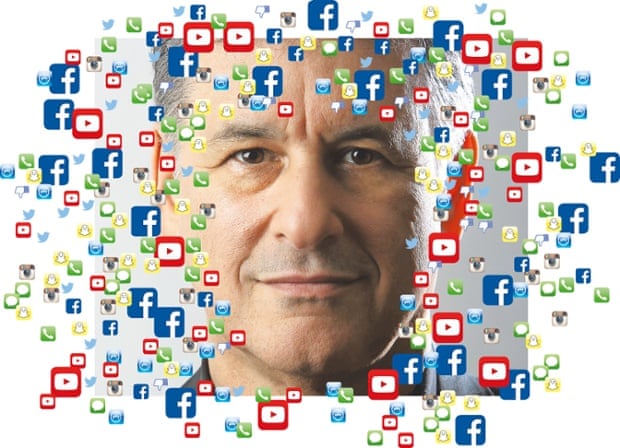The Organized Mind: Thinking Straight in the Age of Information Overload
Why the modern world is bad for your brain
Daniel J. Levitin. Extracted from The Organized Mind: Thinking Straight in the Age of Information Overload, published by Viking
In an era of email, text messages, Facebook and Twitter, we’re all required to do several things at once. But this constant multitasking is taking its toll. Here neuroscientist Daniel J Levitin explains how our addiction to technology is making us less efficient

Our brains are busier than ever before. We’re assaulted with facts, pseudo facts, jibber-jabber, and rumour, all posing as information. Trying to figure out what you need to know and what you can ignore is exhausting. At the same time, we are all doing more. Thirty years ago, travel agents made our airline and rail reservations, salespeople helped us find what we were looking for in shops, and professional typists or secretaries helped busy people with their correspondence. Now we do most of those things ourselves. We are doing the jobs of 10 different people while still trying to keep up with our lives, our children and parents, our friends, our careers, our hobbies, and our favourite TV shows.
Our smartphones have become Swiss army knife–like appliances that include a dictionary, calculator, web browser, email, Game Boy, appointment calendar, voice recorder, guitar tuner, weather forecaster, GPS, texter, tweeter, Facebook updater, and flashlight. They’re more powerful and do more things than the most advanced computer at IBM corporate headquarters 30 years ago. And we use them all the time, part of a 21st-century mania for cramming everything we do into every single spare moment of downtime. We text while we’re walking across the street, catch up on email while standing in a queue – and while having lunch with friends, we surreptitiously check to see what our other friends are doing. At the kitchen counter, cosy and secure in our domicile, we write our shopping lists on smartphones while we are listening to that wonderfully informative podcast on urban beekeeping.
But there’s a fly in the ointment. Although we think we’re doing several things at once, multitasking, this is a powerful and diabolical illusion. Earl Miller, a neuroscientist at MIT and one of the world experts on divided attention, says that our brains are “not wired to multitask well… When people think they’re multitasking, they’re actually just switching from one task to another very rapidly. And every time they do, there’s a cognitive cost in doing so.” So we’re not actually keeping a lot of balls in the air like an expert juggler; we’re more like a bad amateur plate spinner, frantically switching from one task to another, ignoring the one that is not right in front of us but worried it will come crashing down any minute. Even though we think we’re getting a lot done, ironically, multitasking makes us demonstrably less efficient.
Multitasking has been found to increase the production of the stress hormone cortisol as well as the fight-or-flight hormone adrenaline, which can overstimulate your brain and cause mental fog or scrambled thinking. Multitasking creates a dopamine-addiction feedback loop, effectively rewarding the brain for losing focus and for constantly searching for external stimulation. To make matters worse, the prefrontal cortex has a novelty bias, meaning that its attention can be easily hijacked by something new – the proverbial shiny objects we use to entice infants, puppies, and kittens. The irony here for those of us who are trying to focus amid competing activities is clear: the very brain region we need to rely on for staying on task is easily distracted. We answer the phone, look up something on the internet, check our email, send an SMS, and each of these things tweaks the novelty- seeking, reward-seeking centres of the brain, causing a burst of endogenous opioids (no wonder it feels so good!), all to the detriment of our staying on task. It is the ultimate empty-caloried brain candy. Instead of reaping the big rewards that come from sustained, focused effort, we instead reap empty rewards from completing a thousand little sugar-coated tasks.
Long article with research results, continued at:
http://www.theguardian.com/science/2015/jan/18/modern-world-bad-for-brain-daniel-j-levitin-organized-mind-information-overload?CMP=fb_us
unrepentant progress
(611 posts)Newest Reality
(12,712 posts)There is some serious irony afoot here, huh?
bemildred
(90,061 posts)But it is worth noting that it is much easier to keep those balls in the air than it is to think deeply about something tricky. Our sensory apparatus is very efficient and works more or less automatically, so it is much easier to see something than to understand what you are seeing when it's ambiguous, and that is yet again much easier than to think your way into something difficult, using only the feeble resources that the human brain provides.
I used to go to work at 2:00AM just so I could work without being distracted.